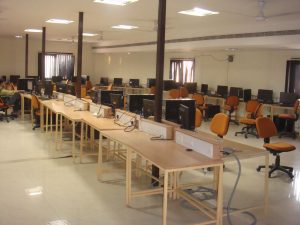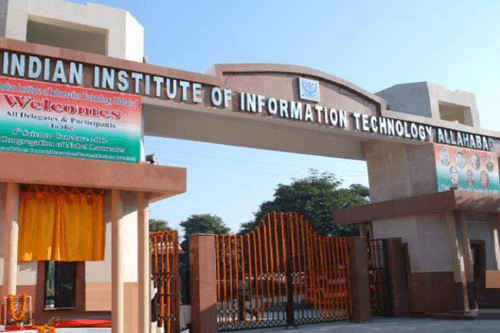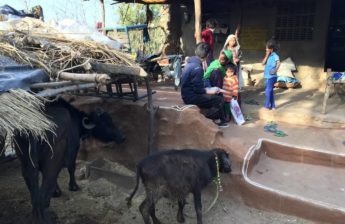Reading Time: 4 minutes
The Indian Institute of Information Technology, Allahabad (IIIT-A) decided to introduce a new course for their technology students – that of Bachelor’s in Technology with specialisation in Media Informatics. This was decided in a two-day workshop on ‘Media Informatics’, reports Dr. Navodita, our Associate Editor. An exclusive for Different Truths.
Let’s face it! We’re living in a techno world – where you wake up and you use electrical appliances to make your morning coffee, toast, heat your water for bathing and step out in a car with automatic gear. Times have changed and, with it, technology has made life easier or at least seemingly so. And yes! For women, things have changed for the better. You can now easily jostle between home jobs and the office with ease due to certain gadgets and tasks made easier by technology and electronics – washing machines which wash and dry clothes, phones through which you can now easily shop online whether for clothes, groceries or your daily mundane purchases. It saves all the labour where women had to feel guilty about not being an ‘efficient homemaker’ simply because they are out for jobs. New media is changing things for the better for a lot more – even for the community that is the supposed ‘have-nots’ of the society.
We already know how Alex, Amazon’s voice-control system, has converted traditional homes into smart-homes. It lets you control your Alexa-compatible devices without having to take out your phone and launch an app.
We already know how Alex, Amazon’s voice-control system, has converted traditional homes into smart-homes. It lets you control your Alexa-compatible devices without having to take out your phone and launch an app. Not just this, it’s a wireless speaker first, but capable of much more. Using nothing but the sound of your voice, you can play music, search the Web, create to-do and shopping lists, shop online, get instant weather reports, and control popular smart-home

products—all while your smartphone stays in your pocket. What sets Alexa and Echo apart from its first-generation voice-assistants is its responsiveness. Once you get used to the quirky things, Alexa feels very natural and responsive than speaking to a phone-based voice assistant like Apple’s Siri. As a result, you’re unlikely to use your phone once you are at home. It is just that comfortable. So, hasn’t technology made life easier and better? Guess what, it is likely to do so in the future, too. What we need, however, is the competency levels to be able to effectively use such devices for simplification of our daily tasks. We need literacy levels to efficiently use such technological gadgets.
It is in keeping in view this trajectory of change that Indian Institute of Information Technology, Allahabad (IIIT-A) decided to introduce a new course for their technology students – that of Bachelor’s in Technology with specialisation in Media Informatics. This was decided in a two-day workshop on ‘Media Informatics’ held at Allahabad recently where experts from various universities met to brainstorm one such session. While Professor Arul Selvan of Indira Gandhi National Open University emphasised on the introduction of ‘Creative Technologies’ and ‘New Media and Society’, Professor Sisir Basu of Banaras Hindu University, Varanasi highlighted the importance of ‘Designing Communication Products and Campaigns’ among other subjects and topics. Some valuable inputs were also given by Dr. Dhananjai Chopra of University of Allahabad, Clyde DeSouza (a Virtual Reality specialist) of Real Vision, UAE, Ashish Kumar Garg of AAFT University, Noida, Professor Govindji Pandey of B.B. Ambedkar University, Lucknow, Dr. Jatin Srivastava of Ohio University, Dr. Manaswini M. Yogi of Delhi University and Dr. Navodita Pande, an independent researcher.
The main point of discussion was the need for a ‘digital literacy’ and ICT (information and communication technologies’) literacy in the long run.
The main point of discussion was the need for a ‘digital literacy’ and ICT (information and communication technologies’) literacy in the long run. As systems are becoming more electronic with not just e-shopping becoming popular but also e-commerce gaining ground, e-governance spreading rapidly among citizens, more and more people need to know the multiple effects of their online usage and its impact on their lives. With the recent Facebook-Cambridge Analytica scandal it is evident that just as online usage in the country is increasing with greater mobile connectivity among other devices, there is a lack of enough ‘technology literacy’ among citizens to analyse the repercussions of their usage of the net, especially as they reveal too much information about their personal and professional lives to such big tech giants. Data privacy becomes an ever graver concern with the advent of technology. As US Congress debates the growing news business of big tech giants, nudged on by the news media organizations of the country, it is time to control not just fake news, but even ‘educate’ the online masses about such online content usage where they are not only ‘consumers’ but also ‘effective producers’ or ‘prosumers’ (producers + consumers).
The need of the hour is not only to train young technology geeks but also ‘aam-aadmi’ about how to use information and technology so they control it rather than technology controlling them. It is high time this is given serious thought as the power of ‘social media’ has already made inroads into making and breaking governments in countries. Is ‘technology’ electing governments or the ‘people’ who know or don’t know how to use that technology?
Photos from the Internet
















